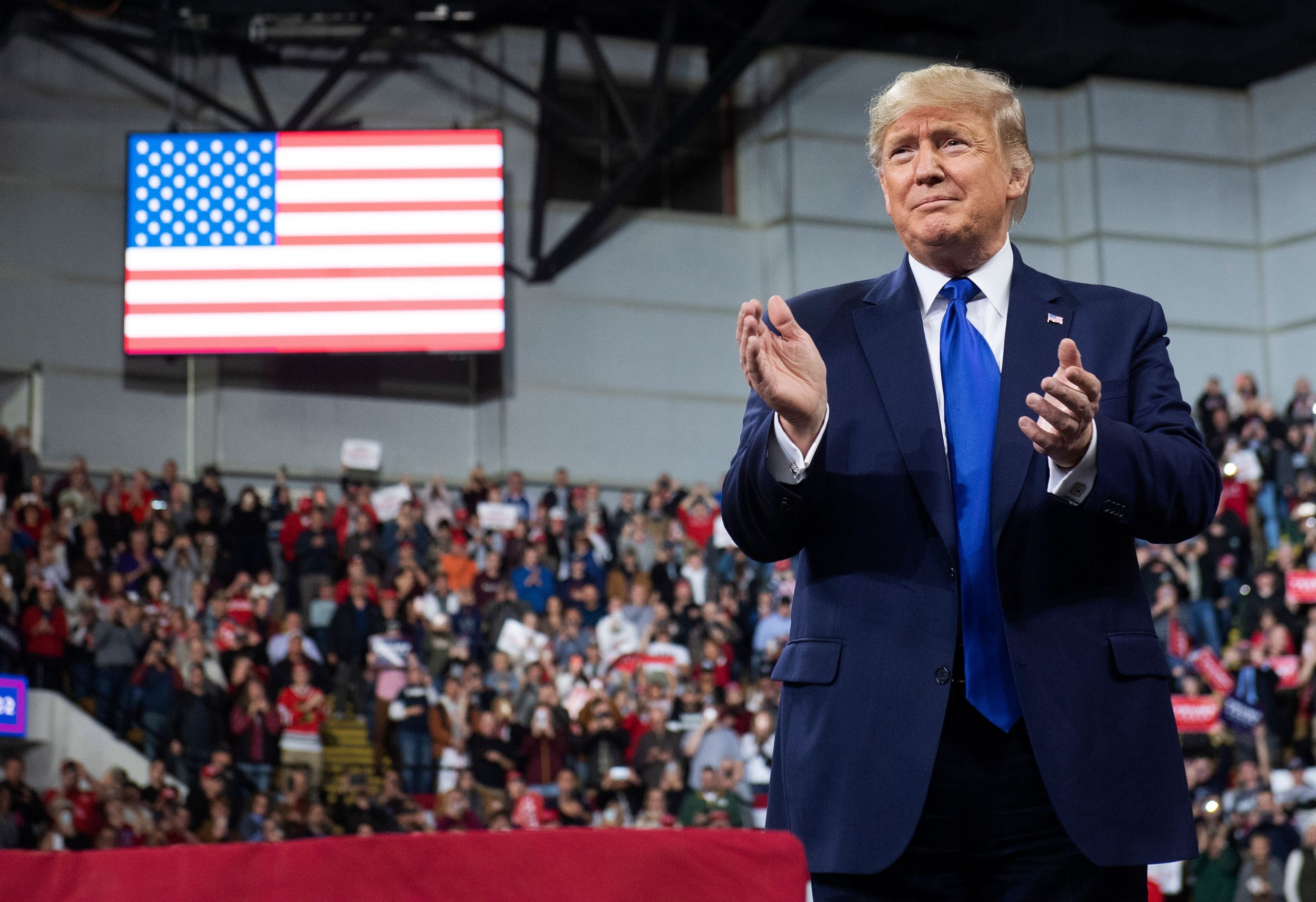
“Pentagon officials have often offered improbable options to presidents to make other possibilities appear more palatable,” observed the New York Times on 4 January. That appears to have been the case following various Iranian provocations to the US. But Donald Trump seized on the most hard-line of the options presented to him: the killing of Qasem Soleimani, Iran’s top general. The president’s motives were almost certainly self-centred. Last October he had announced the US’s fatal strike on Abu Bakr al-Baghdadi, leader of Islamic State, to great praise. Now he wanted a repeat of that and positive comparisons with a supposedly weak Barack Obama.
One man’s narcissism, in other words, triggered the events that followed: the US drone strike killing Soleimani on 3 January, the subsequent joy and fury across the Middle East, Iran’s retaliatory strike on US bases, the accidental Iranian missile attack on jet PS752 to Kiev and the deaths of the 176 people on board, and now the ensuing protests on Iranian streets. Can one apply the “law of unintended consequences” to a man with only a fleeting relationship with the concept of consequences?
Trump knows little about the world and has no foreign-policy doctrine. He acts on impulse. One minute the president repudiates “endless wars” in the Middle East, disparages Obama’s nuclear deal (the JCPOA) with Tehran, mocks Nato, demonises China and makes good with Kim Jong-un. The next he is putting troops back into the Middle East, arguing for Nato to get involved in the region, backing down on his trade war and attacking Kim again. If the American president has a doctrine, it is face-saving inconsistency.
World leaders are learning from this. The know-nothing, care-little narcissist in the White House can be easily manipulated with offers of cosmetic wins. Kim gave him vague commitments to peace. The EU offered to buy American soybeans in return for a pause to tariffs. The latest instance is Boris Johnson’s suggestion on 14 January that the Iran deal is flawed (it is not) and that a “Trump deal” on Iranian nuclear enrichment is needed. In practice this would be a tweaked JCPOA with the president’s name on it. Appealing to Trump’s ego is the best path to peace with Iran.
Trump may win a second term at the election in November. His ensuing sense of impunity will make him a much more dangerous figure on the global stage. Yet there will be other shifts in the wider world. As bound up as Washington’s uncertain foreign policy is with Trump’s psychology and flaws, in the long term it will outlive his presidency. A straight line runs from George W Bush, through Obama’s presidency and now to Trump’s administration. The US is gradually transforming into what is known in international relations as a “semi-hegemon”.
The term was originally applied to modern, reunified Germany’s place in Europe: as a state too big to slot neatly into the continental order but too small to dominate the continent by itself. Today it also applies to the US in the world. For the second half of the 20th century the country was essentially a stabilising power. The Cold War meant a stable rivalry of two opposing hegemons, American and Soviet. The fall of the Berlin Wall in 1989 turned the US into a sole hegemon. But that turned out to be just a brief moment in which the country could have comfortably reshaped the world, before other powers rose and created their own spheres of influence.
The US wasted that chance by electing George W Bush in 2000, as the president who would guide it through the 9/11 attacks and their aftermath. (A world in which Florida went Democrat in the 2000 election, making the keenly multilateralist Al Gore president over Bush, is the ultimate Sliding Doors, alternative-history moment of the modern era.) The Iraq War of 2003 was poorly planned and too unilateral, exposing the US’s weaknesses and hastening the end of its hegemony. Obama, too, was unclear and inconsistent on foreign policy: failing to maintain his “red lines” in Syria, botching his “reset” with Russia and paying too little attention to China’s rise. He had entrenched the US as a vague semi-hegemon long before Trump emerged.
Even if Trump does not win a second term, this trend will continue. Joe Biden is broadly loyal to Obama’s vague foreign policy. In a recent speech in Iowa the former vice-president discussed Trump’s Iran policy at length but failed to mention his role in the JCPOA. Meanwhile Bernie Sanders and Elizabeth Warren, the left candidates, are unclear about where they stand but tend to describe a US that stands up for its values but does less. Polls show that American voters are keen on leadership in the world but at a lower cost in blood and treasure. Such sentiments show a decline in the US’s global ambition.
Much of what is classed as Trumpism is, then, something broader: the birth pangs of a new form of American power that is not down or out but contested and unsure. Washington had a limited period of hegemonic power and squandered it by hubristically trying to reshape the Middle East rather than preparing for a rising China.
It will be in a semi-hegemonic position for the rest of the century. China will overtake the US economy soon but will lag behind American military spending for a long time. We may even be closer, in years, to India overtaking the US economy than to the fall of the Berlin Wall. In other words, the world system will be unstable for the entire 21st century. The best that progressives can wish for is that democratic international institutions – the only long-term solution to geopolitical rivalries – gain power and influence over the course of the century. Therein lies humanity’s best hope.
This article appears in the 15 Jan 2020 issue of the New Statesman, Why the left keeps losing





